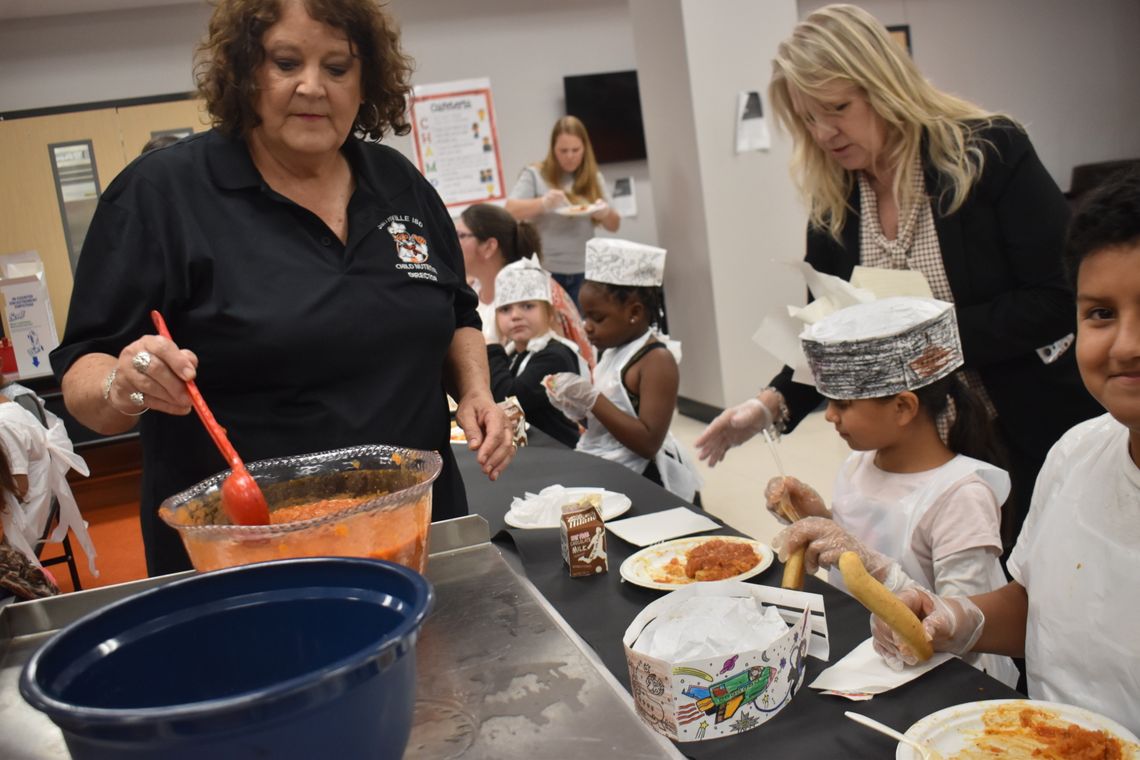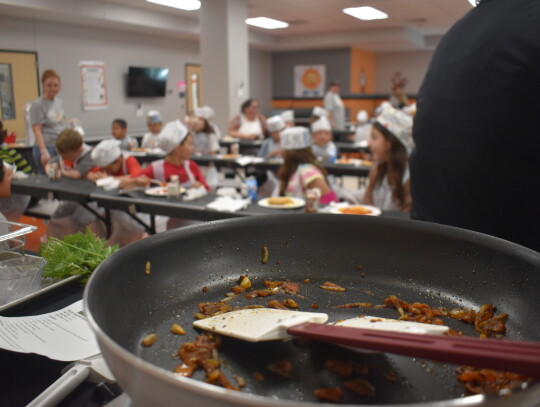SMITHVILLE — No better way to celebrate pay day than with a good meal.
Work from faculty, staff and children earned a $30,000 grant for Smithville Independent School District. They along with parents marked the occasion with an open house at Smithville Elementary School, which concluded with cooking demonstration and tasting.
“The kids enjoyed it,” said Superintendent Cheryl Burns. “I think many of them were a little questioning themselves as far as whether they were going to try the spaghetti, but after taking it out of the squash and they thought that was fun and then of course when they put the sauce on it, most of them that I saw loved it.”
Smithville ISD joined five other Texas school districts for No Kid Hungry Texas' Rural Cohort program. The initiative aims to support peer-to-peer collaboration and innovation around unique challenges and opportunities associated with feeding students in rural school districts.
“It is an open grant opportunity and in particular we're looking for innovative ideas that will increase food access among rural students,” said Mia Medina, No Kid Hungry Texas program manager. “Some of our Cohort members might be focused on meal quality and perhaps purchase steamers or air fryers to get food that can get consistency and texture that kids like. Here at Smithville ISD, they focused on the garden, they focused on equipment but they have focused on opportunities.”
Smithville's superintendent expanded on their efforts, which involved students growing their own vegetables.
“They grow them, they pull them and then we use them in our child nutrition department for their lunches and breakfasts, and so we've received a grant that allows for us to expand that program, and then we're going to be able to use that for some more equipment and expand our gardens,” said Burns. “It's really exciting because our students have the ability to taste things that maybe they haven't tasted before.”
One example is kale. After students grow the kale, they scour the vegetables from the dirt and bring it to the cafeteria. In turn, cafeteria staff cook and turn the children's hard work into kale chips.
“It's so fun to watch kids say, 'When are we having kale chips this week,'” added Burns. “It's a good opportunity to see things that they've never seen before and also look to cook things they've never been challenged to eat.”
Parent Molly Cox backed up how her own children are reacting to the different types of meals.
“My kids really liked the fact that there is variety,” said Cox. “Busy schedules (make it) kind of hard to plan sometimes, and at least with the school meals, they're able to have different types of food than I'm thinking about.”
SISD's local focus also caught No Kid Hungry Texas staff's eye.
“It's really neat because with Smithville ISD, they're also focusing on their farmer-school partnerships as well and thinking about bringing in more local food into the cafeteria,” said Medina, “and so with that come additional opportunities to learn more about where the food comes from.”
Children might also feel a connection to their locally grown food.
“With where we are in society, we can feel a little too far removed and so actually knowing, 'Hey, this is growing from dirt and let's look at the dirt. Let's see it out there. Let's watch it grow,'” said Cox. “They get to see it in the cafeteria. They get to watch the vegetables come out.”
Candy Biehle, SISD child nutrition director, spearheaded the groundwork for bringing the grant to Smithville.
“It's her. We can't say enough good things about her,” said Burns. “She's made the difference in our child nutrition department as far as being innovative and thinking outside of the box and including children in the decision making as far as making food.”
Because of Biehle, the grant and the district's other attention, Burns wants the community to know their children are in good hands.
“If you can get children to eat food that's new for them and it's a well-balanced meal,” she said, “then we're going to take care of that, and everyone should try it.”
.png)






